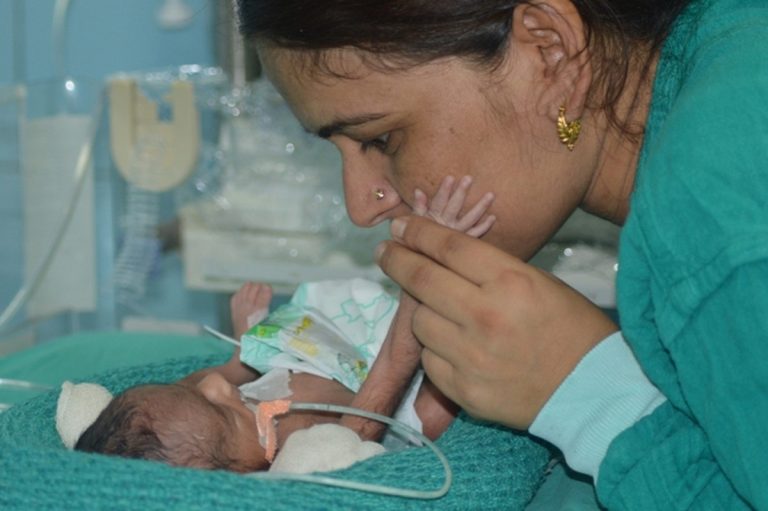Dynamics between providers and receivers of care in a health care system can have a significant impact on both the quality of care as well as health care outcomes.
Near universal health workforce shortages, imbalances in competencies and lack of communication between providers and receivers of care are barriers to quality care in a typical model of facility-based maternal newborn care. The family in this model of care is positioned as a passive receiver of care with a severely limited role in either caregiving or decision-making for their own sick newborn. This imbalance puts an added burden on the family, who is already struggling to cope with hospitalization and separation from their sick baby as well as other social and financial challenges. The sick newborn can also become disadvantaged as his or her developmental needs beyond medical aspects of care may be overlooked.
The family-centered care (FCC) model was designed to overcome these shortcomings. In the FCC model, the family of the hospitalised neonate is nurtured, encouraged and supported to partner in care along with the health care team. A simple comprehensive audio visual training tool structured into four session plans is used to build core competencies among mothers and other family members while the newborn is hospitalized. Caregivers learn proper handwashing, breastfeeding, assisted feeding and skin-to-skin contact for eligible babies, developmentally-supportive care as well as essential newborn care practices and danger signs.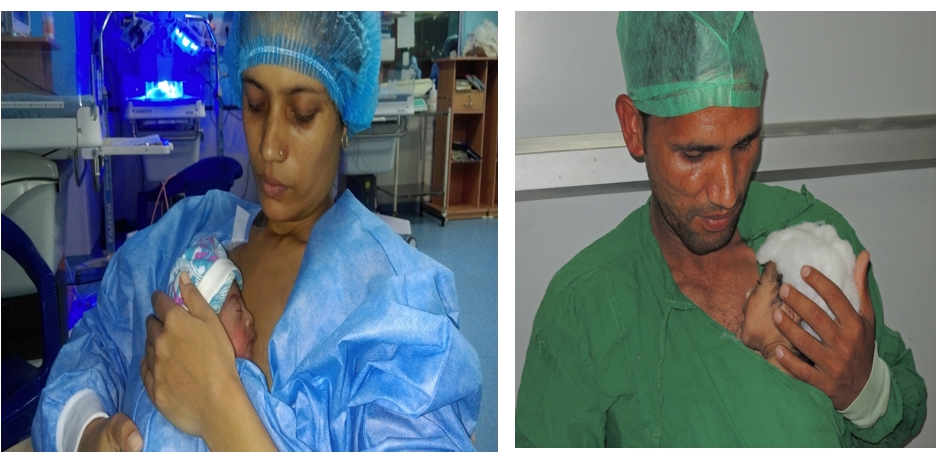
Furthermore, FCC is responsive to the family-identified needs and culturally-sensitive, providing a setting in which family is included, empowered, encouraged and supported in caring for their baby while in the hospital and at home after discharge. Through respectful participation and engagement in non-medical aspects of care for the newborn, families and health care providers form a collaboration based on improved communication, transparency, accountability and integrity. The result is a win-win situation for all stakeholders.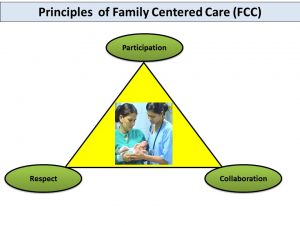
A randomized controlled trial (Verma A, Maria A, Pandey RM, Hans C, Verma A, Sherwani F. Family centered care to complement care of sick newborns : A randomized controlled trial. Indian Pediatrics. 2017 accepted for publication. ( manuscript INPED- 1600800-R)) conducted at a tertiary level neonatal intensive care unit of Dr Ram Manohar Lohia Hospital of north India demonstrated feasibility, improved breastfeeding rates before discharge, shorter hospitalization and no increase in infection rates among individuals using the FCC model as compared to those following the conventional provider-centered care model (Verma& Maria 2017).
An ongoing qualitative evaluation of FCC by an external international agency regarding perceptions among stakeholders documented acceptability and positive attitudes towards the FCC model among both providers and families. Integration of FCC into the systems of care at the facility was also evidenced. Continued caregiving skills at home among mothers post-discharge was also reported.
After initial piloting at five district level II neonatal units (with support from Norway India Partnership Initiative), the Government of India Ministry of Health has now approved the FCC for a wider scale up at district special newborn care units across India.
FCC is appropriate at a time when there are concerted global efforts to improve universal health care access and achieve the Sustainable Development Goals. In addition, this model advances gender equity as it equips both mothers and fathers with caregiving capabilities and promotes shared responsibility.
The FCC model is also likely to impact maternal health. The enhanced competencies among the mothers increase their sense of self-efficacy not only to be able to provide a continuum of care for the newborn but also to practice self-care. Family-centered care can also improve maternal-infant bonding and lead to improved coping skills among parents.
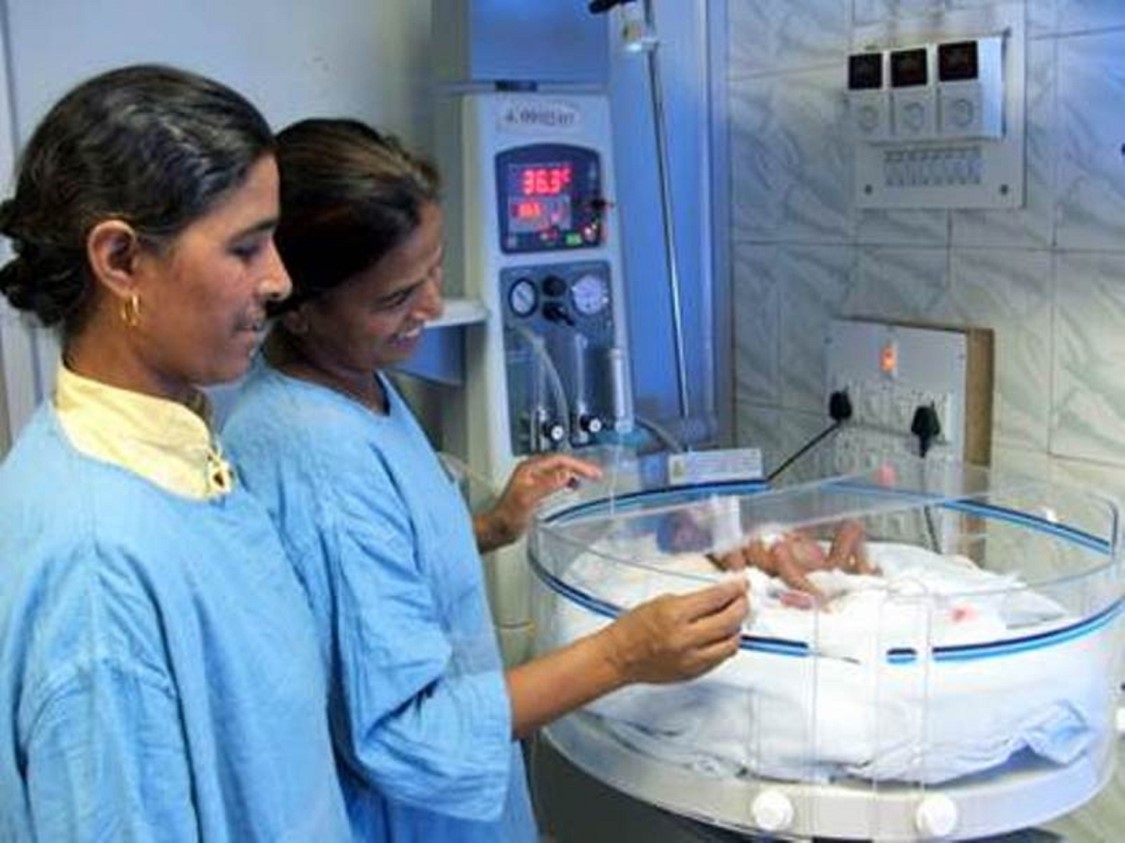
There is an impending need to humanize care and bring about a paradigm shift in the way facility-based newborn care is delivered. Family-centered care is a low-cost, simple innovation in health care delivery that can improve quality of care and promote transparency, accountability and integrity in public service. By enhancing caregiving competencies of parents, FCC can ensure that newborns receive continuous quality care both at the hospital and at home. This proposed social collaboration between the health care provider and the family through can generate social accountability for health with possibility of better preventive health and survival after discharge. This enhanced capacity and shared ownership is key to improving and sustaining newborn health.
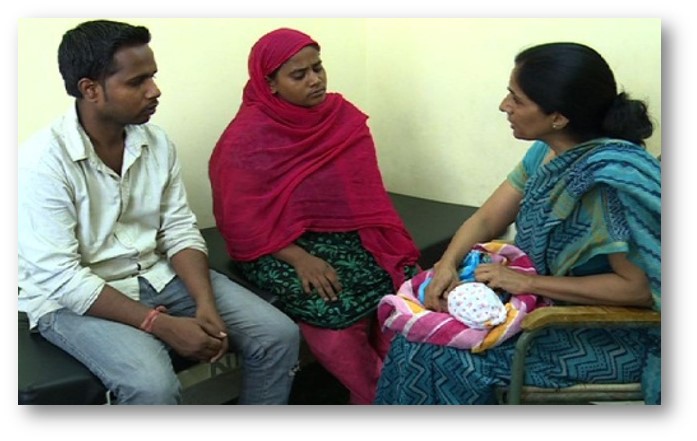
Blog by: Arti Maria, MD DM Neonatology, Prof & Head, Department of Neonatology, PGIMER & Dr RML Hospital, New Delhi
Video links for Family Centered Care (FCC) for Sick Newborn
- Family-Centered Care (FCC): At A Glance
- Family-Centered Care (FCC) : Parents’ experiences
- Scaling up of Family-Centered Care (FCC) across the communities
Resource material:
